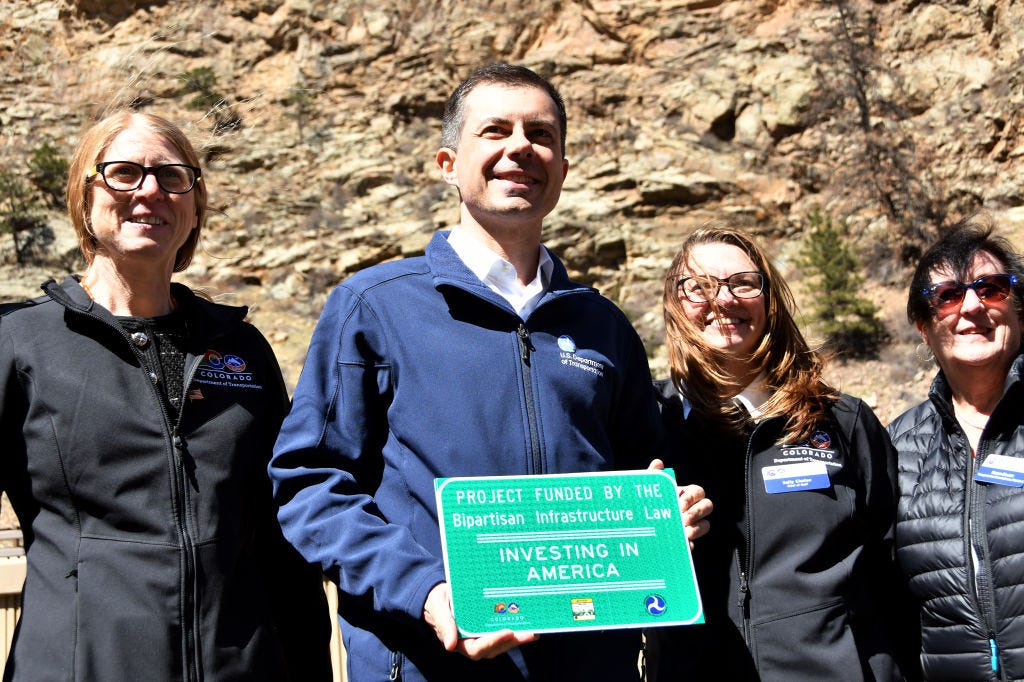Can good policy compete with fascism?
Pete Buttigieg on the Democrats' dangerously long game
One guy was offering fury, a wall, scapegoats, ecstasy, venom, entertainment, purges. The other was promising to rebuild the nation, through projects that would mostly bloom when he was no longer the president.
A question that hovered over the administration of President Biden is whether doing worthy, ambitious economic policy, given the time horizon to …




